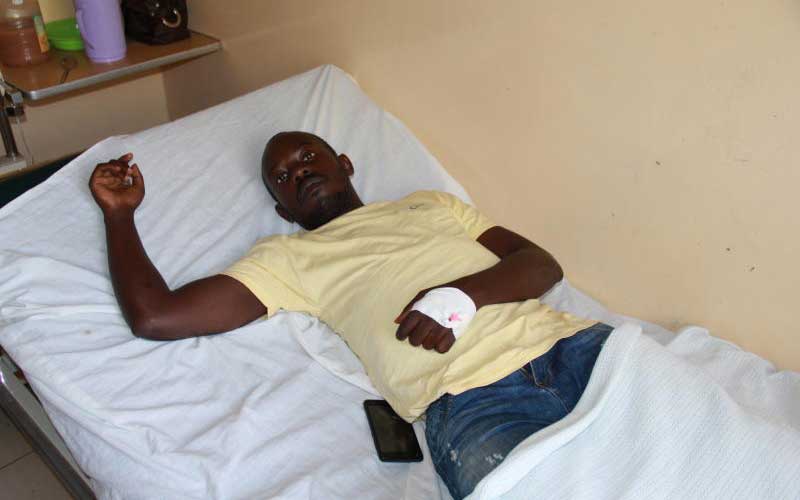
Nixon Abuya in his hospital bed at St Paul’s Hospital in Homa Bay Town on December 17, 2020. [James Omoro, Standard]
In July last year, Nixon Abuya began feeling fatigued, lost his appetite but instead of a shrinking girth, he noted that his tummy was growing bigger and more painful as days went by.
“I thought it was a case of ulcers and treated it as such until I decided to seek a doctor’s opinion after three weeks of severe discomfort which now included vomiting blood, passing bloody stool, and swelling of the legs,” he says.
Facts First
This story continues on The Standard INSiDER. Subscribe now for unfiltered journalism that holds power to account.
Already have an account? Login
 The Standard Group Plc is a multi-media organization with investments in media
platforms spanning newspaper print
operations, television, radio broadcasting, digital and online services. The
Standard Group is recognized as a
leading multi-media house in Kenya with a key influence in matters of national
and international interest.
The Standard Group Plc is a multi-media organization with investments in media
platforms spanning newspaper print
operations, television, radio broadcasting, digital and online services. The
Standard Group is recognized as a
leading multi-media house in Kenya with a key influence in matters of national
and international interest.











